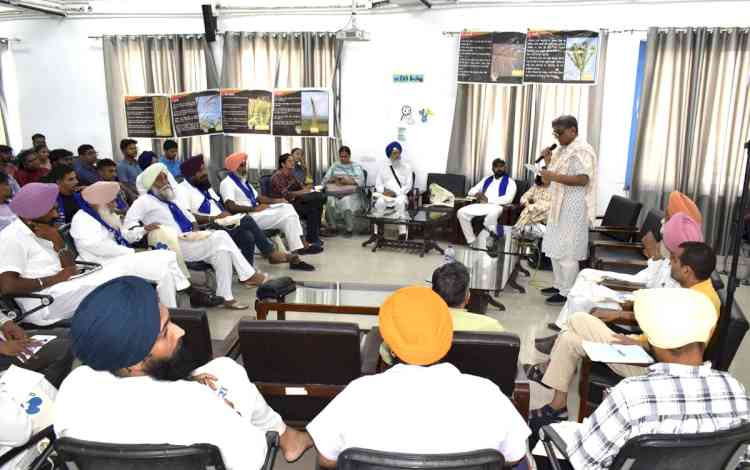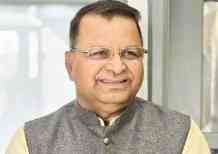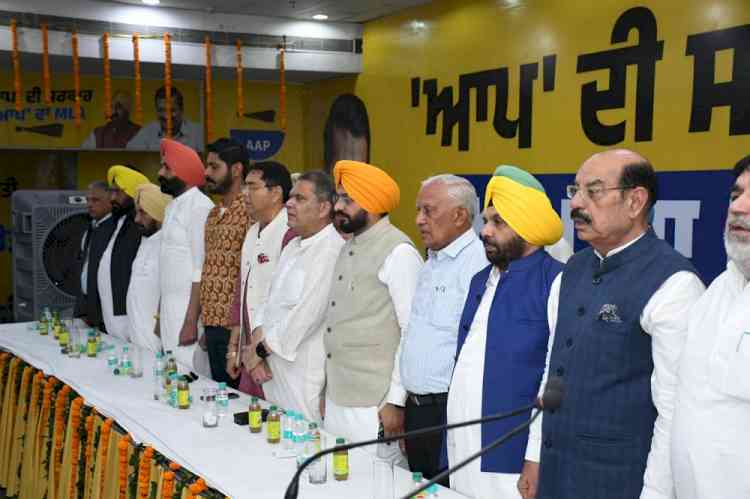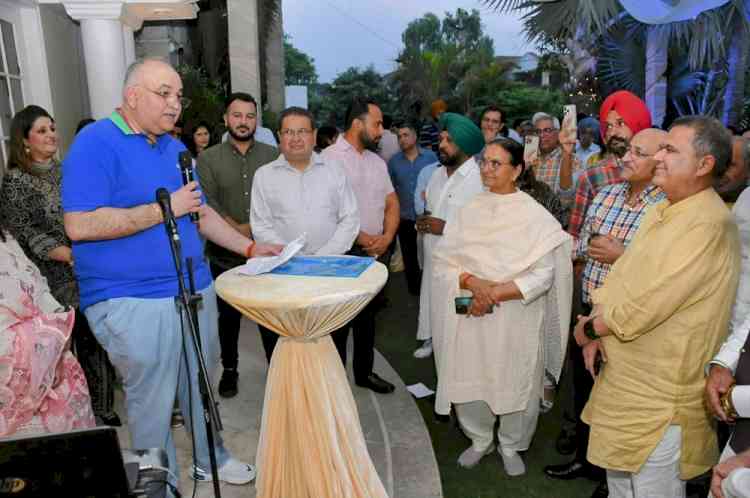Farmers from Bathinda region joined to discuss “Eco-Friendly Farming: Pathways to a Sustainable Food System” at Central University of Punjab
To promote organic consumption in Punjab and foster a clean, green, and fair agro-ecosystem, a Food System Dialogue (FSD) titled “Eco-Friendly Farming: Pathways to a Sustainable Food System” was held on Tuesday, at Central University of Punjab. Farmers from the Bathinda region discussed challenges and ideas for transforming the food system and overcoming common barriers. The event, held under patronage of Vice-Chancellor Prof. Raghavendra P. Tiwari, was a joint collaboration between the Central University of Punjab, VAAGDHARA, Kheti Virasat Mission (KVM), and Bhoomi-Ka.

Bathinda, July 31, 2024: To promote organic consumption in Punjab and foster a clean, green, and fair agro-ecosystem, a Food System Dialogue (FSD) titled “Eco-Friendly Farming: Pathways to a Sustainable Food System” was held on Tuesday, at Central University of Punjab. Farmers from the Bathinda region discussed challenges and ideas for transforming the food system and overcoming common barriers. The event, held under patronage of Vice-Chancellor Prof. Raghavendra P. Tiwari, was a joint collaboration between the Central University of Punjab, VAAGDHARA, Kheti Virasat Mission (KVM), and Bhoomi-Ka.
P. L. Patel, an agriculture expert from VAAGDHARA, briefed the gathering on the organization's work, highlighting its support for tribal farming communities and over one Lakh indigenous families in Rajasthan, Madhya Pradesh, and Gujarat over the past two decades. VAAGDHARA follows the Swaraj philosophy, emphasizing True Farming, True Childhood, and True Governance. Bhoomi-Ka is a working group on supporting the implementation of pathways for organic food system in India. He expressed hope that the dialogue would boost organic farming and consumption in Punjab, leading to a sustainable environment and lifestyle.
The inauguration of the event was marked by watering of the plants by the Prof. R.K. Wusirika, Dean In charge Academics. In his keynote address, Prof. Ramakrishna Wusirika, Dean In charge Academics of CU Punjab, Bathinda, described the benefits of organic agriculture as a holistic production system sustaining the health of soils, ecosystems, and people. He emphasized the global recognition of organic farming as a sustainable approach superior to conventional agriculture, which harms the environment and weakens farmers' competitive positions over time. Prof. Ramakrishna acknowledged the challenges faced by small and marginal landholding farmers, FPOs, and Ecopreneurs in accessing markets and improving economic prospects but noted considerable opportunities through collective action, government support, technology adoption, and income diversification. He stressed the importance of FSDs as platforms for participatory discussions to enhance organic farming practices and develop effective marketing strategies, ultimately contributing to a sustainable environment and lifestyle.
Setting the context Umendra Dutt from KVM highlighted that adopting organic farming practices is voluntary and depends on farmers’ willingness to embrace sustainable agricultural practices. Understanding the experiences and challenges faced by farmers in adopting organic farming is crucial for policymakers to propose effective interventions that can stimulate the conversion to organic farming. Gathering farmers’ suggestions on factors aiding sustainable agricultural practices is also essential.
‘Organic farming creates livelihood for farmers and enhances their return.’ Dr. Chidanand Patil, Associate Professor and Head, Dept. of Applied Agriculture at the Central University Punjab said this while highlighting the governmental schemes to support farmers towards organic farming. He mentioned about Punjab Agri Export Corporation Ltd that has been providing market facilities to organic farmers for selling organic produce like fruits and vegetables and other organic products at various places in the state of Punjab.
The program featured two group discussions: one on the opportunities and challenges for farmers, FPOs, and Ecopreneurs in the organic sector, and another on enhancing food system resilience through processing, value addition, and branding strategies to meet consumer preferences. These discussions were moderated by Sanjeev Tanda from KVM and Dr. Mohit Monga, Asso. Prof. Deptt. of Swasthvritta and Yoga, SSAMCH, Bathinda. Experts briefed the farmers on the importance of PGS Certification, the perspective of the organic product market in Punjab, and the urgent need for comprehensive initiatives to raise awareness and promote the adoption of organic farming. The event brought together experts from the university, civil society, and representatives from FPOs with successful Food System Transformation Pathways. They shared their experiences during the sessions, providing insights, perspectives, and recommendations critical for generating policy-level recommendations to enhance economic sustainability.
In his vote of thanks, P. L. Patel stated that the discussion results would be consolidated into a set of key expectations and principles. These will support the development of more sustainable food systems and suggest policy changes at regional and national levels.


 City Air News
City Air News 










